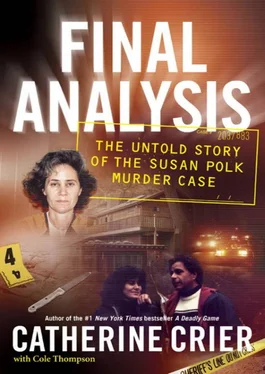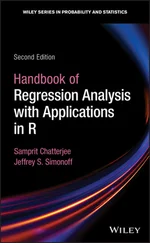Twelve hours earlier, it had been a very different Gabriel that police encountered at the family’s sprawling hillside compound on Miner Road. Then, he was a nervous wreck, out in the street with a phone and a flashlight, afraid that his own mother might come after him.
As the sheriff’s officers arrived at the scene, he was unable to answer many of the officers’ questions. All he knew was that his father, Frank Felix Polk, was dead, and he was certain his mother had killed him.
PART I
A DEATH ON MINER ROAD
Chapter One
UNETHICAL BEGINNINGS
Susan sat quietly in the passenger seat as her mother parked the car in front of the yellow clapboard house on the corner of Ashby Avenue in downtown Berkeley, California. She and her mom were right on time for her first session with Frank Felix Polk, the Alameda County psychologist that school officials had ordered her to see.
For several months in the fall of 1972, Susan Mae Bolling had been playing hooky from Clayton Valley High School in neighboring Contra Costa County. At fifteen, the willowy brunette did not fit the profile of a truant. Recently, she had been called to the principal’s office, not to be admonished, but to be congratulated for her score on the standardized IQ test.
The principal was so excited he could barely contain himself. It was almost embarrassing how he gushed over the ninth grader with the “genius” IQ. News that the quiet freshman with the long, curly hair and hazel eyes was the school’s top scorer spread quickly through the student body, and Susan soon found herself a celebrity of sorts. Being the center of attention was not something she was comfortable with; she was awkward, reserved, and even a bit withdrawn. Being hailed as “gifted,” however, made her feel powerful. Suddenly, she was recognized as a person with superior qualities, and everyone at school was making a fuss over her. She felt extraordinary, even a bit conceited.
Susan decided she no longer needed to study. Why waste time when she was a genius? Instead of homework, she spent her after-school hours doing what she really enjoyed—reading, looking up words in the dictionary, doing crafts, and watching Dialing for Dollars, a fast-paced television game show.
Then she simply stopped going to school.
It was not something she planned. It just sort of happened. It all began the day of her ninth grade math test. She had not studied and could not bear the thought of tarnishing her genius reputation—so she just skipped school that day.
Things snowballed from there. At first, she attended classes intermittently, but soon she was falling behind. Being a genius wasn’t enough if she didn’t attend classes.
Then it happened. She received an “F” on a math test.
Realizing she was in trouble, Susan went to her teacher. He was kind and attentive, immediately offering her extra help. Their impromptu session was helpful, and the teacher told her to come back. But Susan didn’t follow through. All of a sudden, everything seemed too hard.
The walk to school was too long, especially on the days that the neighborhood bully and his buddies were on the street. At the time, Susan was living with her mother and older brother, David, in a two-bedroom apartment in Concord, an area of the East Bay about forty-five minutes outside San Francisco. She didn’t feel safe in their blue-collar neighborhood, where gunshots were not uncommon, and there’d been several murders in the hills behind her house. The little girl who lived next door had been struck in the head by a stray bullet and needed surgery to have it removed. Susan had babysat for the child several times and was horrified when her father came by to share the news. It made her nervous to pass the older boy and his friends, and she didn’t like the way they looked at her.
Even at school, she didn’t feel safe. During her first week at Clayton, a girl jumped her, and then several others joined in, shoving her repeatedly, until a teacher intervened. Susan was convinced the attack was racially motivated, and that the girls at the mostly black and Hispanic high school were jealous that some boys had taken a liking to her. She was trim and attractive in a natural sort of way, with porcelain skin, hazel eyes, and long curly hair the color of dark chocolate. Staying home with her books and visiting the imaginary world of David Copperfield was infinitely preferable to the anxiety of traveling to school and the realization that she was falling behind in class.
It wasn’t that Susan didn’t want to go to school; she loved to learn.
She just couldn’t muster the courage to leave the house anymore. When she did, she felt physically ill, as if she would faint from heart palpitations and shortness of breath. She wanted the feeling to stop.
For more than a month, Susan intercepted letters from the high school attendance office, inquiring about her excessive absences. When her mother finally learned that she had been skipping school, she didn’t ask why. Helen Bolling simply followed the recommendation of the school guidance counselor to have her daughter evaluated by Frank “Felix” Polk, a licensed clinical psychologist who specialized in the treatment of adolescents and families.
Susan’s stomach was aflutter as she trailed her mother up the steps of Dr. Polk’s clapboard house. His office was to the left of a small waiting area; the double doors were ajar, but there was no one inside and no receptionist to greet them. After waiting for some time, Susan and her mother returned to the car. The psychologist was apologetic when Mrs. Bolling phoned to question his absence, and another appointment was scheduled.
On the second visit, Susan was just as uncomfortable, but as it turned out, she was off the hook again. Polk, who went by the name “Felix,” seemed more amused than sorry that he’d double-booked for their new time slot and asked Mrs. Bolling to reschedule once more. Susan didn’t really have much choice; because of her truancy, the school required that she be evaluated by this doctor.
Her mother didn’t even park the car on their third visit to the Berkeley office. She double-parked on Ashby Avenue until she was sure the therapist was available. A million thoughts ran through Susan’s mind as she climbed the steps of the yellow house for a third time. What if the psychologist is really handsome, she worried. She would not be able to speak to him. She would be too shy to open up.
Dr. Polk requested to speak privately with Mrs. Bolling before meeting with the teen. Susan waited anxiously in the small reception area as her mother disappeared behind the office’s heavy double doors. It was a long fifteen minutes before her mother summoned her to join the conversation.
The sparsely furnished room was dim with only one window located high on the wall, almost to the ceiling. There was a small kitchenette in the rear of the space. Standing awkwardly near one of the dark leather chairs, Susan remained silent as the psychologist and her mother continued their discussion. She felt relieved at the sight of the fortyish and not so handsome doctor. He was not particularly tall, about 5′9″, 160 pounds, and his prominent nose, kinky brown hair, and thick lips were not what she had envisioned.
“No problem,” she mused to herself. She could never be attracted to such a person.
Her mother finally left the room. Feeling awkward and insecure, Susan glanced around, and then focused on the casually dressed professional. She didn’t like the way he was looking at her.
At fifteen, Susan realized that boys were eyeing her differently. They seemed interested in a way she had not experienced. Yet a flirtatious look from one of her male teenage friends was one thing, while a similar look from her new psychologist was quite another. He looked more than twice her age.
Читать дальше











